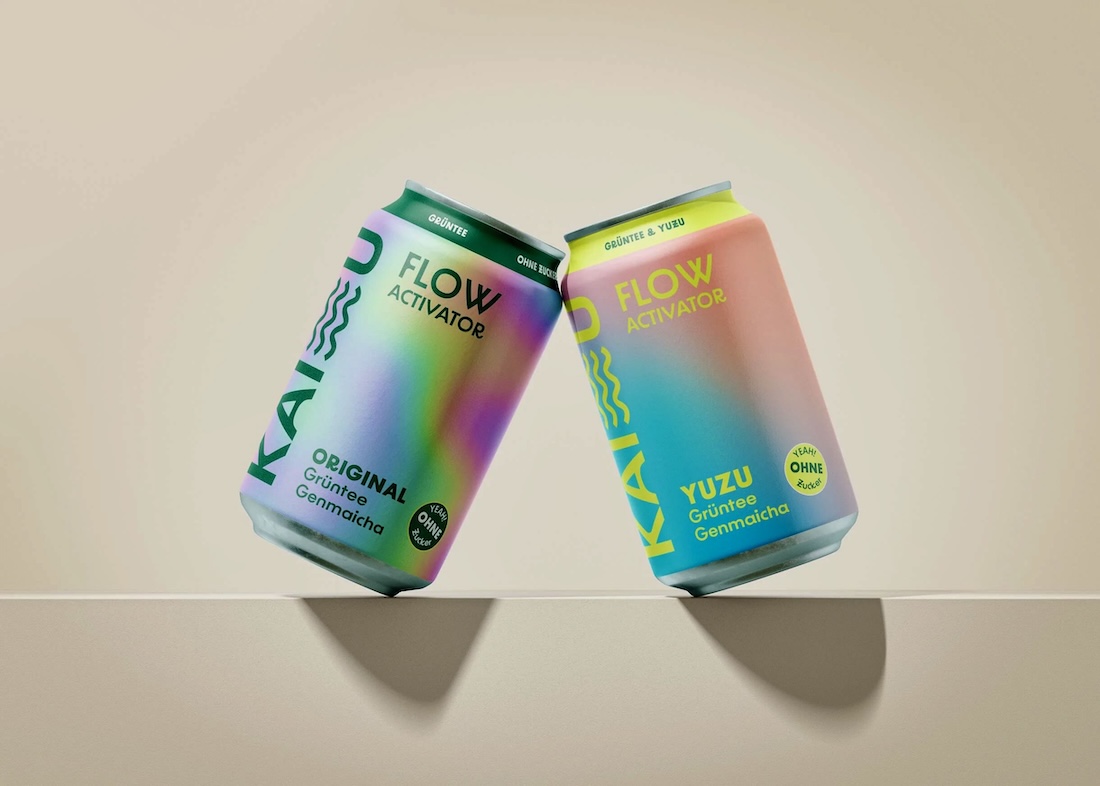Tokyo (SCCIJ) – Niklas Jung from the city of Lucerne has launched an energy drink in Switzerland he built from scratch. His concept for the Swiss-made drink “Kaisu” is based on green tea products he experienced during a visit to Japan.

The Swiss energy drink Kaisu tastes familiar to the Japanese because it is basically cold-brewed genmaicha (© Kaisu).
Green tea, roasted rice
While numerous vending machines, bars, and restaurants in Japan offer unsweetened tea drinks, they are not well known in Switzerland, says the 32-year-old Swiss creator of the new energy drink. “Why are there so few soft drinks without sugar or artificial sweeteners?” Now, he is filling these voids with his drink Kaisu.
Genmaicha, a traditional Japanese tea blend of green tea and roasted rice, forms the basis for the drinks Jung developed in his kitchen. The roasted flavor is reminiscent of freshly popped popcorn, earning it the nickname “popcorn tea”. It took Jung a long time before he was satisfied. “I tasted about 30 Japanese tea farms and 150 different green teas before I found the right one,” he told the Lucerne news website “Zentralplus”.
Tea leaves from Shizuoka
Jung settled on three flavors: One based on the Japanese original genmaicha, one with ginger, and one with yuzu, a Japanese citrus fruit. The tea leaves are imported directly from the Shizuoka region in Japan. After a longer search, he found a brewery in the canton of Berne that produced the first 300 liters of each variety. The sale of the first batch of 2,500 started in the middle of November. Later, the drinks will be available in retail stores and restaurants.
According to him, his drinks provide the unique effect of a long-lasting energy boost due to the complex carbohydrates and fiber in the genmaicha while causing a simultaneous relaxation, reducing stress, and strengthening the immune system. The effect would last for several hours and would not end abruptly with a crash like other caffeinated drinks.
“Flow” effect promised
In addition to natural ingredients and the vegan label, the Japan-inspired founder decided to market his drink with the promise of “flow”. Jung, who himself has practiced Zen meditation for more than five years, explained that this refers to a state of relaxation and concentration.
The entrepreneur attributes the flow effect to the unique structure of the genmaicha it contains. The natural L-theanine found in green tea and the caffeine in the tea work synergistically, also known as a nootropic combination. The brain converts L-Theanine into a type of neurotransmitter that reduces the signals of the central nervous system.
Caffeine is known to activate, energize, and promote concentration. However, compared to coffee, green tea has the advantage that its caffeine is bound to special tannins such as catechins. This means that the caffeine is not absorbed suddenly through the stomach as with coffee, but gently and slowly through the intestines.
Text: Martin Fritz for SCCIJ





























